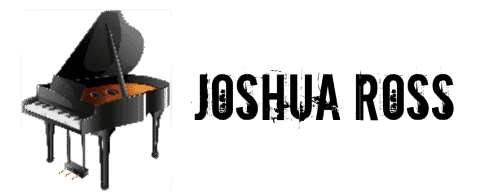As an Amazon Associate I earn from qualifying purchases.
A digital piano is not quite the same as a real acoustic piano, although technology has narrowed the gap significantly. For example, high-end digital models offer weighted keys and advanced sound replication that emulates the hammer action and resonance of their acoustic counterparts.
Want to Learn Piano?Click Here

However, the touch and tone of an acoustic piano have nuances that digital pianos are still trying to capture. Feeling the vibration of the strings and the natural decay of sound on an acoustic piano adds to the depth of expression that’s hard to replicate.
I remember when I played a Chopin nocturne on a grand piano during practice in college. The way the notes sang and filled the room was profoundly different than when I later performed on a digital piano during a home rehearsal.
Your journey in music will likely involve both types of instruments. The acoustic piano’s rich overtones and dynamic range make it irreplaceable for some styles. Meanwhile, digital pianos’ versatility and innovations continue to serve any well when they need a convenient option.
Assessing Instrument Quality and Playability

When comparing digital and acoustic pianos, it’s essential to assess their quality and playability, focusing on sound, touch, and the modern features they offer. This evaluation will guide you in discerning which instrument might better serve your musical journey.
Sound Comparison
The piano sound from a grand piano resonates through its wooden body, offering rich overtones and a decay that’s difficult to replicate. Digital pianos, however, provide sound quality that relies on samples from high-end grand pianos.
Pay close attention to the polyphony numbers; higher polyphony allows for more complex sound layers. Look for digital pianos with built-in speakers that offer a clear, room-filling reverb to better simulate an acoustic piano’s ambiance.
Touch and Feel
In terms of the physical experience, weighted keys and hammer action keyboards can closely mimic the heft and resistance of a traditional piano. A proper keyboard action should feel consistent across the keys, giving you a realistic piano feel.
Test the sustain pedal—a vital component that should smoothly and effectively prolong your notes just like on an acoustic instrument.
Features and Technology
Digital pianos shine with their features and technology—from MIDI connectivity for recording to variety in sound libraries. Use these features to explore different musical styles and find your unique voice.
Sampling technology has advanced, but ensure that your digital piano provides you with a variety of high-quality sounds. For connectivity, consider USB or Bluetooth options for easy integration with other devices.
Practical Considerations
When choosing between digital and acoustic pianos, you’ll want to consider aspects like spatial requirements, costs, and how the instrument suits your personal needs as a player.
Space and Portability
You might find that space is a premium in your home. Portable digital pianos offer a significant advantage due to their compact size—some even come with the option to detach the stand for even easier storage.
They are lightweight, can be easily moved from room to room, or even transported to different venues, making them ideal if you plan to travel or perform in various locations. The flexibility of portable digital pianos when it comes to space should not be underestimated.
Maintenance and Cost
In terms of upkeep, digital pianos require minimal maintenance compared to their acoustic counterparts. There’s no need for tuning, which saves you the cost and hassle of regular technician visits.
In the price range, digital pianos are often more affordable, making them an attractive alternative for beginners and those on a budget.
However, if you’re considering an upgrade down the line, remember that higher-end models come with advanced features and better piano samples, warranting a higher price.
Suitability for Different Users
For beginners, the range of beginner digital pianos usually includes built-in learning tools which can be incredibly useful.
Digital pianos tend to be more versatile and offer a range of sounds and features that can cater to different styles, which is something a student or piano teacher might find beneficial.
However, the playing experience of an acoustic piano, with its weighted keys and nuanced sound dynamics, is something that digital pianos can only simulate.
Hello & thanks for stopping by! I’m a professional concert pianist and piano instructor. In the United States, I’ve given successful performances in several places including New York, Florida, Connecticut, & New Jersey, I have also performed internationally in Italy and made my Carnegie Hall debut in 2014. I enjoy blogging about the piano, the art of performance, general music, current events and the latest in music production.
